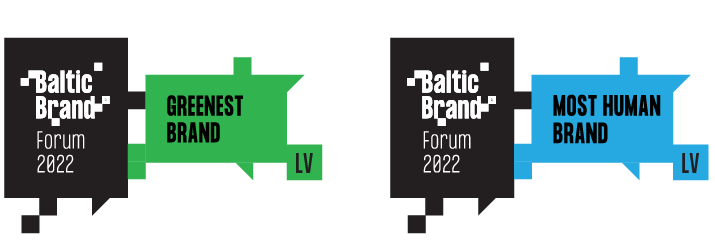JSC “Latvia's State Forests” Joins the Latvian Peat Society
JSC “Latvia's State Forests” (LVM) joins the Latvian Peat Association (Latvijas Nacionālā kūdras biedrība; LNKB) to promote sustainable management of Latvian bogs and to be actively involved in the formation of the industry policy.
At the LNKB board meeting, Director of LVM Zemes dzīles Kristīne Ansone presented LVM's approach to effective, sustainable, and socially responsible resource management of Latvia's strategic assets – land, forest land, subsoil and other resources – and its vision of creating long-term value for both owners and society. LNKB members unanimously voted for LVM's admission to the association.
“By developing technology and science-based product solutions and services, we are sure that it is possible to promote Latvia's competitiveness in global supply chains and ensure the achievement of climate neutrality goals. Effective and responsible management of Latvia's resources would make a significant economic and social contribution to the Latvian society. Thoughtful and responsible development of such an important and exportable industry, as well as policy making are among the main goals, why LVM made the decision to join LNKB,” says LVM Board Member Jānis Lapiņš.
Peat is one of Latvia's valuable natural resources, which is found in Latvian bogs and covers 10 % of the territory of Latvia. The State owns 93 % of Latvian bogs, while 58 % of State-owned peat bogs are managed by LVM. Latvia is the world leader in terms of peat export volumes and ranks second behind Canada in terms of value. Peat obtained in Latvia accounts for 30 % of the total market supply on the European market.
“Peat is an important local resource of Latvia, which has always been and can continue to be one of the foundations of stability for the Latvian economy and food availability. LNKB unites peat resource owners who, by planning in the long term, implement a full cycle of responsible management, carefully conducting research and environmental impact assessment, designing, transparently implementing extraction, promoting the introduction of technologies and the development of recultivation solutions. Achieving the goals of climate neutrality, the policy of sustainable land management and the regulatory framework at both European and national levels are essential pillars for the development of the industry. For the successful development of the industry, it is critically important that the Latvian peat industry has a voice in Europe. LNKB is a member of the International Peat Union, where it has also renewed the national committee, thus providing an opportunity to explain the importance of the peat industry in the national economy and to create awareness of the importance of responsible management of bogs in achieving climate goals,” says Kristīne Ansone, Director of LVM Zemes dzīles.
The climatic conditions in Latvia are favourable for the development of the bog and peat industry. The goals of LNKB are to promote the inclusion of peat as a slowly renewable natural resource in the implementation of the EU's green course, which includes close cooperation with Latvian scientists and conducting research, modernization of the peat sector and reduction of emissions, local consumption of peat and development of innovative peat products with added value.
“It should be remembered that peat is essential not only for the development of the agricultural and horticultural sector; peat bogs are important for the economy, environment and society. In these complex geopolitical times and in the context of climate change, it is more than ever critical to involve all stakeholders in decision-making processes at both national and international level. The joining of JSC “Latvia’s State Forests” as a strong and sustainable management expert to the Latvian National Peat Society will significantly strengthen the ability to create a responsible long-term industry policy and high-quality dialogue both at the local and international level,” says Māris Kļaviņš, Chairman of the Board of LNBK.
LNKB members manage 70 % of Latvian bogs, peat extraction provides more than 3 000 jobs in the regions of Latvia. In total, there are more than 5 000 peat deposits in the country, industrial extraction takes place in 4 % of the territory of peat deposits. The latest scientific studies confirm that peat resources regenerate to a greater extent than they are being developed: 2-3 mm increase per year. From one cubic metre of peat substrate, 6 000 forest seedlings or 7 000 vegetable seedlings can be grown, thus increasing the added value more than 100 times.



